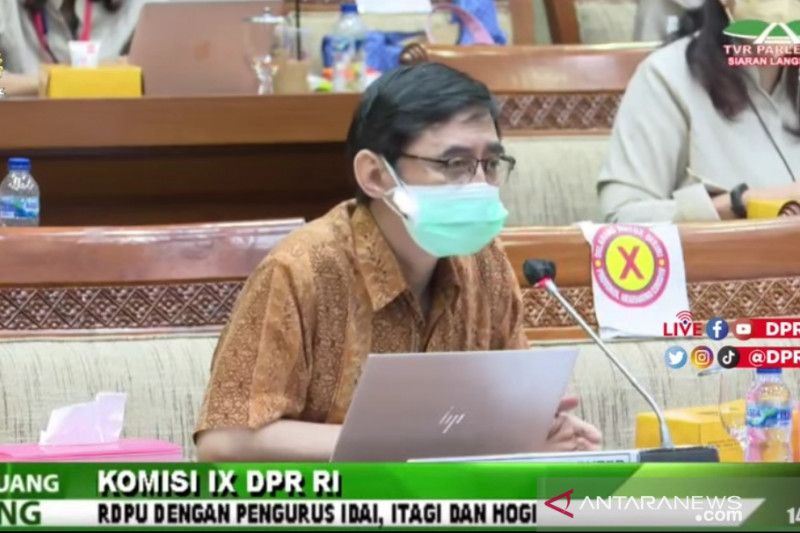Jakarta (ANTARA) – The Indonesian Pediatrician Association (IDAI) recommends that the pneumococcal conjugate vaccine (PCV) vaccination program for children in Indonesia be expanded to target vulnerable groups with comorbidities.
“This vaccine is a vaccine that is needed to reduce morbidity and mortality in our children,” said Head of the IDAI Immunization Task Force Hartono in a Hearing Meeting with Commission IX which was attended by the Indonesian Parliament’s YouTube in Jakarta, Monday.
Hartono said IDAI welcomes the inclusion of the PCV vaccine in the national vaccination program that targets children aged 2, 3 and 12 months.
“We also recommend thinking about children under 2 years old between the ages of 1 to 2 years and also for children who need to have comorbidities, such as congenital heart disease,” he said.
Also read: 250,000 children aged 6-11 years in Riau Islands are vaccinated starting January 2022
Also read: The government still prioritizes vaccination of the elderly before giving it to children
He said that currently there are many children who come to the hospital for treatment up to five times because of pneumonia due to having comorbidities, namely congenital heart defects.
For this reason, IDAI recommends that the procurement of PCV vaccines for the control of severe infectious diseases, such as meningitis, pneumonia, and blood infections or sepsis, can be increased.
In addition to conveying its support for PCV vaccination, IDAI is also committed to assisting the process of HPV vaccination as a vaccine to prevent cervical cancer and Rotavirus vaccine to prevent diarrhea.
“Currently there are limited health workers in carrying out routine immunizations throughout Indonesia, considering that these health workers are also involved in immunizing the COVID-19 vaccine,” he said.
The shortage of vaccine interpreters can be partially covered by employing doctors who have recently graduated from education while waiting for further studies or assignment placements.
“Or there are also doctors who wait intensively, they can wait several months. So there are those who wait three months, some are six months. Well, their waiting time they can be utilized,” he said.
According to Hartono, these health workers have great potential to boost routine vaccinations in Indonesia, especially after the COVID-19 pandemic has slowed.
He estimates that throughout Indonesia there are around 2000 new graduates to support the strengthening of routine immunization in the country.
Hartono added that in the near future IDAI will launch the Littleku program which is an acronym for “complete my child’s incomplete immunization”.
The program was initiated to invite parents to immunize their children considering the declining immunization coverage due to the COVID-19 pandemic.
“Immunize these children so that our children have good immunization coverage to avoid dangerous diseases so that they can become the golden generation in 2045,” he said.*
Also read: Kemendikbudristek supports vaccination of children 6-11 years old at school
Also read: Ahead of the COVID-19 vaccination for children aged 6-11 years in Indonesia
Reporter: Andi Firdaus
Editor: Erafzon Saptiyulda AS
COPYRIGHT © ANTARA 2021
–

:quality(80)/cdn-kiosk-api.telegraaf.nl/bf74ddee-4bb1-11ec-8fda-02d1dbdc35d1.jpg)
